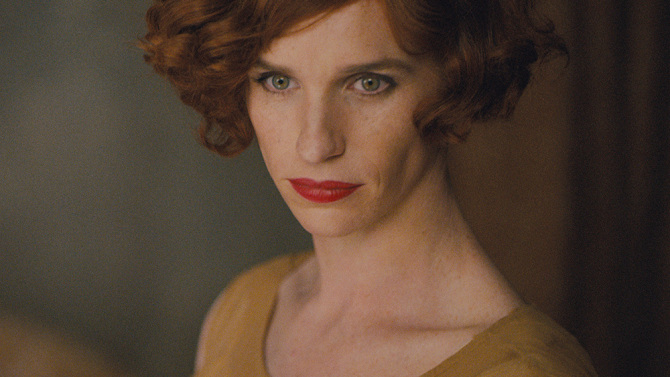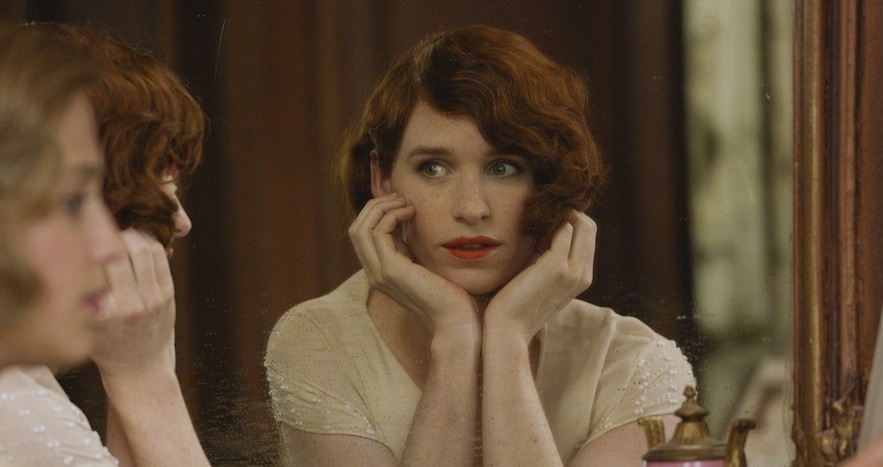The Oscar Girl.
The Danish Girl is based on the life of Danish painter Lili Elbe and the life of her one-time wife, Gerda Wegener. Except that it isn’t. It’s actually based on the novel, “The Danish Girl”, by David Ebershoff, which was an almost entirely fictionalised portrayal of Elbe and Wegener lives. In fact, Ebershoff’s novel is so extreme in its alteration of actuality that none of the characters save the central two reflect any real person and a lot of the traits and motivations of both Elbe and Wegener in the novel are drastically inaccurate. I haven’t read the book, so can’t speak for how much Eberhoff portrays his version of the story as reality but Tom Hooper’s The Danish Girl never suggests it’s anything but faithful to Elbe’s story. But we know that it isn’t.
Which begs the question – why bother using Elbe and Wegener’s names in the first place? Presenting fiction as fact isn’t something new in film but that doesn’t mean it’s something that needs to continue. That fact is almost always more compelling, and certainly more appropriate when relaying a film based on truth, is not a new complaint for this website. Look no further than David Fincher’s Zodiac for a masterpiece that at the very least pursues fact, and is better because of it. The Danish Girl isn’t interested in fact, which wouldn’t be a problem if it didn’t have the pretence of truth. The question then, is just how much of a problem it is in relation to what Hooper wants to convey. It’s not a successful translation of Elbe’s life. It is a compelling insight into sexual identity.
Einar Elbe (Eddie Redmayne) and Gerda Wegener (Alicia Vikander) live in Copenhagen, etching out a living through Elbe’s work. Wegener is the weaker painter and struggles with living in the shadows of her husband. She asks him to stand in for one of her female models and he uncovers an affinity for femininity. A party is held in honour of Danish artist. Einer doesn’t want to go, but Gerda insists, so he dresses up as his female cousin, ‘Lili’. Einer’s attraction for the female physical appearance grows and the couple realise that there’s more to Lili than fancy. Einer is Lili Elbe and she was, as the film asserts, one of the first people in the world to undergo sex reassignment surgery.
Hooper’s filmography is a prestigious albeit bland one. He’s the man behind The King’s Speech and Les Miserables. From that you may begin to form an idea of what sort of film The Danish Girl is. Hooper directs the Elbe and Wegener’s story with a similar sense of sluggish beauty and pomposity. But it’s better than his last two films because the subject matter is intrinsically more compelling than a king with a stutter and an unnecessary adaptation of a musical not designed for film. Not Elbe, nor Wegener, since The Danish Girl isn’t really about them. It’s about sexual identity, a topic rarely depicted as accessibly as it is here. The word ‘accessibly’ is not meant to alienate those who have struggled with sexual identity, but rather to highlight how lucky those are that haven’t had to struggle with it, and the persecution that still follows it. The strength of Hooper’s film is that is generates empathy amongst those who couldn’t possibly imagine what Elbe’s transition must have been like.
There will be more films like this over the coming months because, unfortunately, “Oscar Bait” is a thing. And sometimes it really is just enough to make a polish period film about someone struggling with something or other. The Danish Girl is just that but it’s not a great film. Neither was The King’s Speech or Les Miserables. We’ll mistake films like them for great films for years to come.
6/10
For more Reviews, click here. If you’re digging ReelGood, sign up to our mailing list for exclusive content, early reviews and chances to win big!

